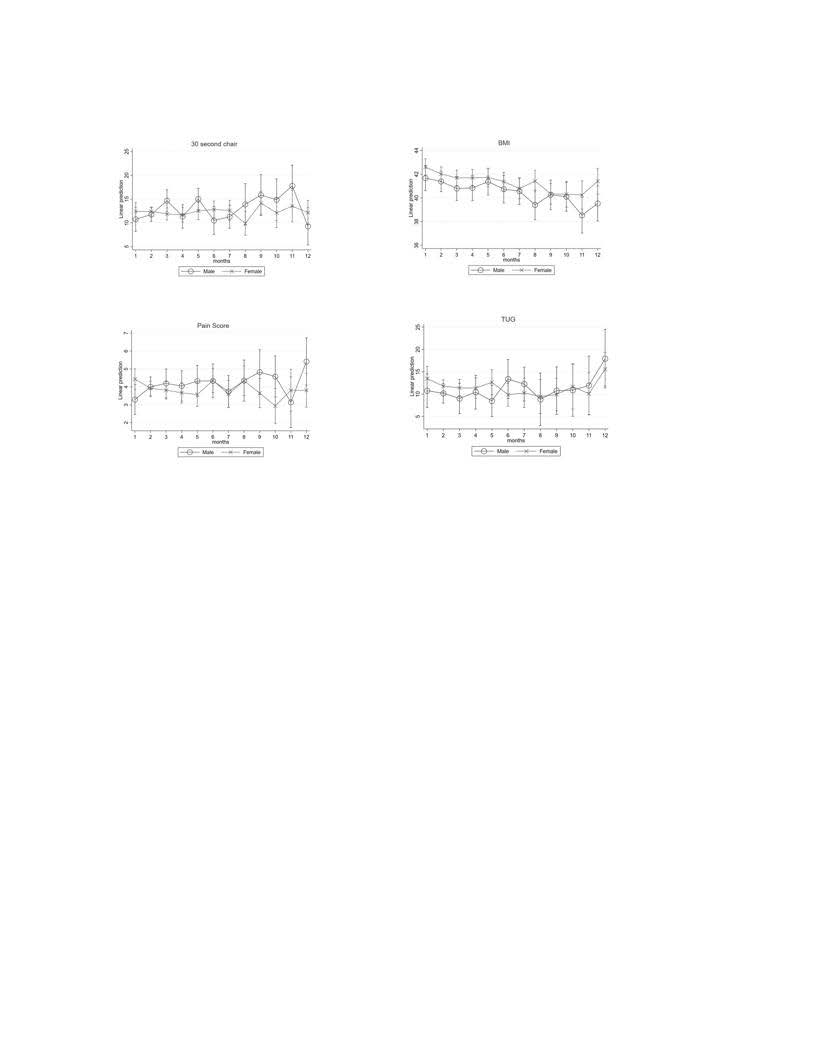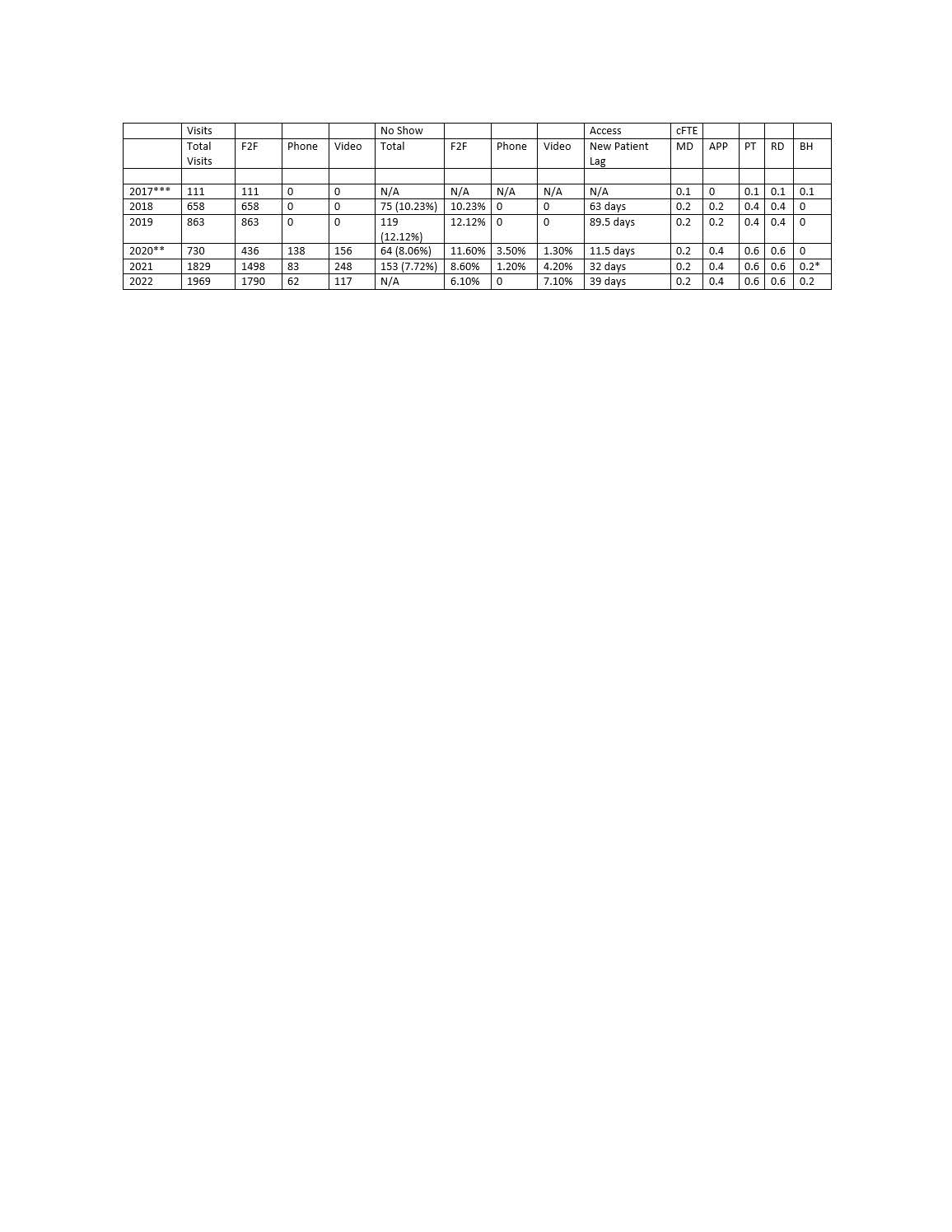Session Information
Session Type: Poster Session A
Session Time: 9:00AM-11:00AM
Background/Purpose: To assess patient outcomes from an Osteoarthritis Management Program (OAMP) situated in an academic medical center.
Methods: Eligibility for this open cohort study included adults with knee or hip osteoarthritis (OA) who attended at least one OAMP visit from 7/1/2017 to 1/15/2021. The OAMP was designed to deliver 1-5 visits across 12 months. A multidisciplinary team provided OA education and self-management; exercise and nutrition; weight loss; pharmacologic management; and assessed mood, sleep, quality of life, and disordered eating patterns. Patient BMI, pain and function were assessed at each visit. Primary patient outcomes included pain rated on the 0-10 Visual Analogue Scale (VAS) and function assessed by the 30-Second Chair Rise test and Timed-Up-And-Go (TUG).
Results: Of the 953 patients attending 2531 visits, most were female (72.6%), older (62.1 ± 10.8), and Caucasian (91.1%). Half (48.5%) were employed and most were insured by Medicare (51.2%) or commercial health insurance (38.8%). Obesity was prevalent (BMI 40.9 ± 10), and bilateral knee OA was the most common diagnosis (42.6%). Assist device use was common (32.95%). Pain changed insignificantly from an average baseline in men of 4.22 ± .177 (0-10 VAS) to 4.78 ± .63 at 12 months. Women also had no significant change in pain. Overweight or obese men had a decrease in BMI over the first 12 months from baseline BMI of 42.25 ± .58 to 40.10 ± .92. Overweight or obese women did not had a significant decrease in weight with baseline BMI 42.22 ± .37 and 12 month BMI 41.28 ± .58. Baseline functional testing scores were lower than normal values for a population of this age, with no significant differences between women and men or after completion of OAMP treatment. Patients with severe baseline pain (7-10 on the VAS) were 94% (95% CI 1.61-2.36) more likely to report decreased pain after OAMP treatment than patients with lower baseline pain. Patients with a starting BMI of 40+ were 60% (95% CI 1.2-2.1) more likely to lose weight than patients with a lower BMI. Patients who did not have health insurance had a shorter treatment duration.
Conclusion: This open cohort study of a guideline-driven OAMP demonstrates that patients with the highest baseline pain and BMI were more likely to experience reductions in pain and BMI respectively. Uninsured patients had the shortest treatment duration. Next steps will be to identify the baseline characteristics of patients who will benefit most from OAMP treatment and to continue exploration of barriers to guideline-recommended care. OA continues to be an under-treated chronic disease and these results an important start to understanding patient outcomes related to OAMP programs within the U.S. healthcare system.
To cite this abstract in AMA style:
Miller K, Vundamati D, Baier L, Brown R, Yue Yu T, Bartels C. Implementing an Osteoarthritis Management Program to Deliver Guideline-Driven Care for Knee and Hip Osteoarthritis in a U.S. Academic Health System [abstract]. Arthritis Rheumatol. 2023; 75 (suppl 9). https://acrabstracts.org/abstract/implementing-an-osteoarthritis-management-program-to-deliver-guideline-driven-care-for-knee-and-hip-osteoarthritis-in-a-u-s-academic-health-system/. Accessed .« Back to ACR Convergence 2023
ACR Meeting Abstracts - https://acrabstracts.org/abstract/implementing-an-osteoarthritis-management-program-to-deliver-guideline-driven-care-for-knee-and-hip-osteoarthritis-in-a-u-s-academic-health-system/



